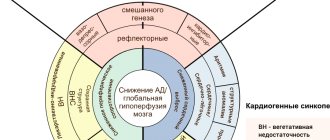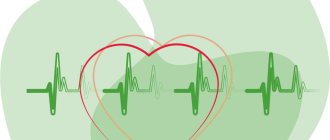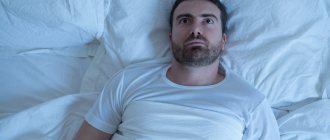Not feeling the joy of life or being in a state of anxiety, we often grab food - but, as it turns out, it’s not at all what we need! We'll tell you how you can use nutrition to correct symptoms of depression and headaches.
Let's start with some scary numbers. Today, depression is the world leader in the number of mental disorders. According to WHO estimates, more than 300 million people from all age groups suffer from it, including 8 million Russians. And every year this disease leads to 800 thousand suicides in the world - for people 15-29 years old it is the second leading cause of death.
Women are more susceptible to depression than men, due to greater susceptibility due to hormonal, genetic or other characteristics of brain development and functioning.
With age, the likelihood of depressive disorders only increases. If in developed countries every second such patient receives help, then in the rest of the world - at best, every tenth. And not only does the patient suffer from depression, his family suffers, which cannot live fully, society suffers, in whose life the person no longer takes an active part, and the economy bears the costs.
For every third patient with depression, traditional drug therapy does not help. In general, the world community is sounding the alarm, and I completely agree that depression is one of the threats to human health, along with obesity.
How stress leads to depression
According to experts, in general, depression is observed in 20-30 percent of people who seek medical help for a completely different reason. Rarely does a person come straight to a psychotherapist; rather, he will turn, for example, to a gastroenterologist or cardiologist. Our body is a single system, and there is no denying the fact that there is a clear relationship between depression and physical health.
For example, cardiovascular diseases and gastrointestinal pathologies can lead to the development of depression, and vice versa. And, of course, one of the significant factors in the formation of this condition is stress.
As soon as a stressful event occurs (or simply daily stress accumulates to a certain level), our sympathetic nervous system (this is part of the autonomic nervous system) and the hypothalamic-pituitary-adrenal system (hypothalamic-pituitary-adrenal axis, HPA) are immediately activated. on which the production of most important hormones depends. Within a few hours after this, cortisol and adrenaline are released, which have a significant effect on the physiological activity of the gastrointestinal tract, reduce the motility of the stomach and small intestine, as well as the synthesis of hydrochloric acid in the stomach, and at the same time increase the motility of the large intestine.
These processes certainly affect the composition of the intestinal microbiome, leading to its dysbiosis - microbial imbalance. The brain learns about unpleasant events occurring in the intestines through hormonal and neural signals and reacts to this, in turn, with a whole range of disorders: anxiety and aggressiveness increase, memory and concentration deteriorate, signs of depression appear, etc.
Products recognized as antidepressants:
- Fatty fish that contain Omega-3 and seafood
- Poultry meat
- Red lean meat (baked, boiled, stewed)
- Eggs
- Milk and dairy products
- Vegetables, fruits and berries (frozen can be used)
- Legumes (peas, lentils and beans)
- Nuts and dried fruits
- Dark chocolate, strawberries, bananas
Probiotics against depression
The “emotional” connection between the intestinal microbiome and the brain is very clear and has been proven by scientists.
They are like twins: if one feels bad, the other certainly feels it and gets upset. For example, recently microbiologists from the USA presented the results of a study on the effect of stress on the microbiome of rats. The experiment, it must be said, was not the most humane: the experimental subjects were subjected to emotional and physiological stress, as a result of which groups were identified as “stress-resistant” and “not stress-resistant.”
In the microbiome of rats from the second group, a high content of certain bacteria was found, in particular, the genus Clostridia. And, having transplanted it to a stress-resistant animal, they found that the latter’s behavior changed to depressive, and in the hippocampus, a part of the brain that plays an important role in the formation of spatial orientation, perception and storage of information, the onset of an inflammatory process was discovered.
And, on the contrary, beneficial bacteria (probiotics) have a positive effect on both the behavior of experimental subjects and the biochemical parameters of the body. Ted Dinan, professor of psychiatry and scientific director of the Center for Nutritional Pharmabiotics at University College in Ireland, also discovered this in an experiment on rats.
First, he separated newborn rat pups from their mother, which caused them to develop depression and a significant decrease in immunity, and then gave them the probiotic Bifidobacterium infantis, after which the experimental subjects’ lives clearly improved and their mood improved.
Thanks to this experiment, a new term “psychobiotic” appeared in science, which refers to bacteria that, when ingested in sufficient concentration, can benefit mental health.
Here is another recent study, this time conducted by Dutch and Belgian scientists: they were able to compare the composition of the intestinal microbiome and some indicators of human well-being. It has been confirmed that the “microbial background” differs among people depending not only on their emotional and physical well-being, but also on whether they take antidepressants, as well as on their overall quality of life. For example, large numbers of bacteria from the Faecalibacterium family have been found in the intestines of those who suffer from depression.
Good mood hormone - serotonin
The joy hormone is synthesized by the body and cannot be obtained from food. The main participant in the synthesis is the amino acid tryptophan, which was discussed above.
For the production of serotonin, the presence in the body of such substances as:
- vitamins C
- B vitamins
- magnesium
- zinc
The list of depression foods to improve your mood looks like this:
- fresh vegetables and fruits with bright colors (indicating a high content of vitamins and bioflavonoids) - pumpkin, bell peppers, beets, citrus fruits, grapes;
- seafood high in iodine, antioxidants and unsaturated fatty acids, which improve metabolic processes in the body and increase brain performance - fish, seaweed, shrimp;
- fermented milk products help maintain the correct balance of beneficial microorganisms in the intestines, which has a beneficial effect on the production of serotonin;
- Bananas , due to their high content of vitamin B6, reduce susceptibility to depression;
- legumes and whole grain products are a source of B vitamins and help improve sleep and good mood;
- dark chocolate is rich in magnesium, has a positive effect on mood, helps to cope with stress more easily;
- nuts are a source of vitamin B2 and omega-3 fatty acids;
- eggs are a valuable product with a high content of vitamins (A, E, D), essential amino acids.
If the functions of the nervous system are impaired, it is useful to enrich the diet with additional sources of vitamins and proteins, since it is not always easy to obtain the required amount of nutrients from ordinary foods.
One of the valuable components for complete nutrition is the Nutrimun protein from the Diso brand, which will provide the body with the necessary amino acids.
It is important to coordinate nutrition for depression with your doctor; following his recommendations will help you recover faster, feel energy and taste for life.
What does the gut-brain connection mean for treating depression?
Gastrointestinal hormones and neurotransmitters serotonin, dopamine and norepinephrine play a role in the formation of symptoms of depression.
By the way, dopamine and serotonin interact with each other in an interesting way: high dopamine levels reduce serotonin levels and vice versa. That is, when we really want something and strive for the goal with all our hearts (which is accompanied by a high level of dopamine), we are not inclined at that moment to go crazy with joy and vigorously express positive emotions.
And vice versa, when we simply enjoy life, even without special reasons (at the same time, the level of serotonin increases), our determination decreases - why strive for something when it’s already good?
As for norepinephrine, it is the neurons that synthesize this substance that regulate the functioning of other neurons - those that produce dopamine. This means that a sufficient amount of norepinephrine provides resistance to stress and reduces the likelihood of developing depression.
The activity of the gastrointestinal tract is affected by both the lack of serotonin, which is concentrated here at almost 95 percent, and dopamine - it plays a similar role as a signaling molecule, transmitting impulses between neurons of the gastrointestinal tract and coordinating contractions of the circular muscles, for example, in the large intestine. And its lack, again, affects both the psycho-emotional state and the peristalsis of the large intestine.
Look what happens in the end. On the one hand, changes in the amount of chemicals that transmit nerve impulses and gastrointestinal hormones can provoke various disorders in the functioning of the intestines. On the other hand, people suffering from intestinal problems often experience panic disorder, depression, stress, and suffer from migraines.
So it turns out that in many cases it is not enough to treat depression with just sessions with a psychotherapist or taking antidepressants, which, as it turns out, do not work on everyone (this is due to the functioning of the nerve cells of a particular patient). If the gut-brain connection is an axiom, then by influencing the gut and reducing inflammation through dietary modification and rational intake of pre- and probiotics, we can achieve excellent results.
Chocolate
It’s no wonder that cocoa is the most popular drink of autumn. This is because cocoa beans contain a very large dose of tryptophan. They also have the caffeine boost to help you wake up from your hibernation and get into action.
Bitter or milky. Which chocolate is the healthiest?>>>
Headache is an alarm signal from the intestines
And finally, about one more “pig” that your intestines, or more precisely, you can play on yourself, with your careless attitude towards the work of this organ. Surely you have at least once tried to go on strict, “starvation” diets, and if the willpower was enough for at least a day, I am sure that you most likely turned away from the path of slimness because of a headache.
Indeed, a headache from hunger is a “hello” from evolution, because thanks to this signal, our ancestors were forced to get out of the cave and go in search of food, no matter how much they wanted to sit by the fire, wrapped in a mammoth skin. When we are hungry, our blood glucose levels drop, our brain lacks energy, and it reports this in a way that is accessible to it.
But, in addition, a headache can be a reaction to the entry of unwanted substances into the intestines, from toxins to foods to which you are allergic, hypersensitive or intolerant. Data on the biochemical mechanisms of migraine attacks indicate that the metabolism of certain substances is disrupted, primarily serotonin, which is mainly concentrated in the intestines, as well as histamine, a sharp release of which leads to dilation of blood vessels - as a result, we get an attack.
If you often suffer from migraines, try to bring your diet in line with the “tastes” of your intestines. You will make him happy, and he will make you happy!
Mental Health Clinic - We Can Help
Psychologists at our clinic will conduct a professional psychological diagnosis of your condition. In a confidential conversation with a psychotherapist, you will find the true motives of your actions and be able to cope with your problems. An experienced specialist will conduct psychological training with you so that in the future you will be able to manage your emotions, know how to get out of depression on your own, feel more confident and be able to cope with life’s difficulties and problems yourself.
How does psychotherapy help with chronic pain and depression?
Psychotherapy sessions play an important role in the treatment of chronic pain. And the most popular type of such therapy is cognitive. During cognitive therapy sessions, the doctor teaches the patient to get rid of all negative thoughts and emotions that arise during severe pain. A person’s negative state often distorts the surrounding reality for him. And the goal of a course of cognitive therapy is for a person to learn to think differently, thereby alleviating his condition. Psychotherapy also helps well with depression, it removes anxiety, a depressed state and allows you to regain control over your life.
Can antidepressants relieve pain and depression?
As we said above, pain and depression have a common source, namely the same neurotransmitters and nerve endings. Therefore, both in the case of chronic pain and in the case of depression, antidepressants help well. The main goal of antidepressants is to change the way the brain works so that the body's pain threshold decreases. Tricyclic antidepressants (Doxepin, Evalin) have long proven their effectiveness. But they have a lot of side effects that have made their use limited. But medicine does not stand still. And today there are already new generation antidepressants such as Effexor and Cymbalta, which are very successful in treating chronic pain and depression, and their side effects are very minor.
How can you relieve pain and depression through exercise?
Many people with chronic pain experience decreased physical activity. They are afraid that exercising will only worsen the pain or lead to injury. In fact, this is a big misconception. And everything is quite the opposite - it is the refusal of physical activity that increases the likelihood of injury and increased pain. But moderate exercise, with permission and under the close supervision of a doctor, is perhaps the most important element in the comprehensive treatment of chronic pain and depression.
What are the consequences of depression associated with chronic pain?
People suffering from chronic pain, aggravated by depression, are in a very difficult situation. The fact is that depression is considered the most common mental disorder in chronic pain, and it often worsens a person’s well-being, preventing effective treatment.
The American Association conducted statistical studies in this area and found that thirty-two million people living in America suffered from chronic pain throughout the year. Half of the patients who applied for severe pain experienced depression. Pain is present in 65% of patients who are depressed.
Very often, doctors make the same mistake - they pay attention only to the patient’s complaints related to pain, but his depressed state goes unnoticed. The result is obvious - the patient develops depression, he stops sleeping, eating, moving, and the pain intensifies.










